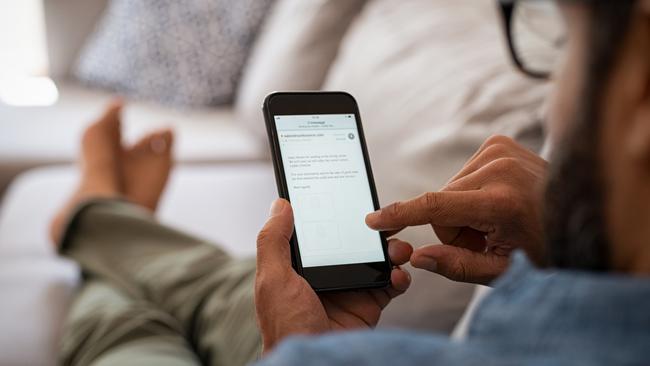Burnout and psychological distress higher for workers connected after hours, UniSA says.
As the Christmas break looms, researchers are urging South Australian workers to digitally detox and resist the compulsion to answer work calls, texts and emails while on leave.
SA News
Don't miss out on the headlines from SA News. Followed categories will be added to My News.
A digital detox from work-related calls and messages this Christmas break is the best gift South Australian workers can give themselves and their families, warn SA researchers – who report at least one in four workers are responding to their boss while on leave.
A UniSA study has found Australian workers who respond to emails, texts and calls after hours record higher levels of burnout and mental distress and poorer health than those who switch off.
The findings, which have the backing of unions fighting for workers’ rights to digitally disconnect once they clock off, come as South Australians prepare to take leave over Christmas and the new year.

The UniSA research shows that those who were expected to respond to after-hours communications from colleagues on weekends reported higher levels of psychological distress (56 per cent compared with 42 per cent); emotional exhaustion (61 per cent compared with 42 per cent); and poor physical health (28 per cent compared with 10 per cent).
The study surveyed more than 2200 academics and professionals working across 40 Australian universities last year and this year.
Other findings included 57 per cent of employees had sent work-related digital communications to other colleagues at night and more than one in four felt they had to respond to work-related correspondence from supervisors during their leisure time.
UniSA researcher Dr Amy Zadow said the digitalisation of work had skyrocketed post-Covid, blurring work boundaries and making people contactable at all hours.

“Being available to work both day and night limits the opportunity for people to recover – doing things such as exercise and catching up with friends and family – and when there is no recovery period you can start to burn out,” said Dr Zadow, a registered psychologist.
Australian Council of Trade of Unions secretary Sally McManus said unions would continue to push for a right to disconnect as part of the Working from Home Charter of Rights.
“Employees need a right to disconnect. It makes so much difference to mental health, fatigue, and also work quality,” said Ms McManus.
“If employers don’t respect employees’ boundaries and right to disconnect, it can lead to overwork, long hours, stress, isolation, as well as instances of family and domestic violence.”
“Right to disconnect” protection for workers was first legislated in France in 2016, then Italy and Spain.
In Victoria, the police union’s most recent enterprise bargaining negotiations directs managers to respect leave and rest days and avoid contacting officers outside work hours, unless in an emergency or to check on their welfare.





